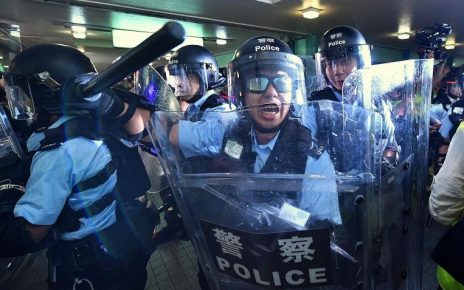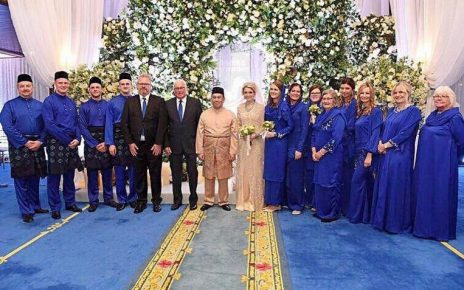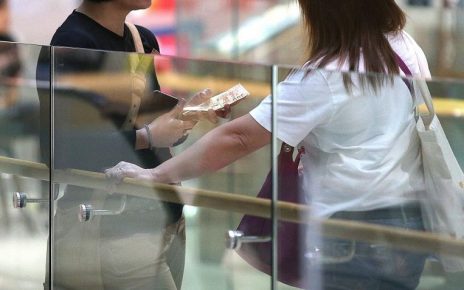How different are the concerns of Deputy Prime Minister Heng Swee Keat and fourth-generation ministers from those of generations before? What shifts in leadership style can Singaporeans expect when they take charge in a few years? How might Singapore politics change?
Not too different, going by Mr Heng’s first interview with the media since his promotion to DPM this month.
It is, after all, a formula that has worked all these years, and one the 4G team – and many Singaporeans – seem keen to keep to, albeit with perceptible shifts in style.
With societies and political systems around the world becoming more polarised, and trust in governments fraying, Mr Heng is resolved that Singapore continues to buck this global trend.
Two factors are critical for this.
One, a broad political consensus, which can be best achieved through strong support for a party that can decisively shape forward-looking policies to grow the economy and share the fruits of growth, as well as hold society together and build cohesion.
Two, political leaders must be upfront about the trade-offs that have to be made, like the need to raise the goods and services tax to meet long-term spending needs and address challenges such as inequality and an ageing society.
Expect the 4G leaders to make a case for these in the coming months and when the general election comes round. (“We still have some time,” Mr Heng says.)
With societies and political systems around the world becoming more polarised, and trust in governments fraying, Mr Heng is resolved that Singapore continues to buck this global trend. Two factors are critical for this. One, a broad political consensus, which can be best achieved through strong support for a party that can decisively shape forward-looking policies to grow the economy and share the fruits of growth, as well as hold society together and build cohesion. Two, political leaders must be upfront about the trade-offs that have to be made.
In his first May Day Rally speech last Wednesday, Mr Heng reminded unionists that the symbiotic relationship the People’s Action Party (PAP) has forged with the National Trades Union Congress (NTUC) is a critical factor in uplifting the wages, welfare and work prospects of workers – and will continue to be key in the more uncertain job landscape ahead.
In his interview with The Sunday Times and CNA, Mr Heng underscores the need to preserve a broad political consensus here in order to avoid the political polarisation and race to the bottom seen around the world, and to win public support for tough decisions on key issues.
“Everyone promises that things will be easier, better and sometimes to the point of telling untruths. That is not the kind of politics that we should have in Singapore,” he says.
“We must be prepared to face realities even if they are harsh… I hope that in Singapore, we can do it well and keep this consensus that we have had for so many years.”
Such consensus, he notes, was what allowed Singapore to make good progress over the past 50-plus years. And Mr Heng and his colleagues seem resolved to maintain this continuity.
However, Mr Heng’s approach to building this consensus is what could distinguish the 4G from the previous three generations of leaders.
Shortly after being appointed to Prime Minister Lee Hsien Loong’s Cabinet eight years ago, Mr Heng was tasked to lead a series of conversations with a range of Singaporeans to get their views on the country’s future and have them play a role in shaping it.
The SG50 year saw similar discussions.
Mr Heng wants to go beyond consultation, to empowering citizens to step up and take action to shape the Singapore they want.
“Now that we have a far better-educated, far more exposed generation of people, how do we build on these strengths?” he says.
“We can take this a step forward… We should try and build leaders in all parts of our society and enable them to do what they feel passionate about – to create a society in which those who are willing and able are able to say: ‘Well, look, there is this particular issue that I care about greatly and I would like to do my part to build this, to resolve this problem or tackle this opportunity.'”
He points out that founding prime minister Lee Kuan Yew put in enormous effort to create a multiracial, multi-religious and multicultural society and, under his leadership, Singapore was able to forge the cohesion needed for important challenges and progress.
Mr Goh Chok Tong had a more open consultative style and PM Lee Hsien Loong has continued this open approach.
Mr Heng hopes to build on this.
While society is becoming more diverse, this diversity must be harnessed and turned into a strength – not a source of division.
The 4G leaders plan to engage and better understand the concerns and aspirations of various segments of the population in the lead-up to the election, and beyond.
But the message the 4G aims to send remains the same: Political continuity – and strong support for it – is a plus for Singapore.


